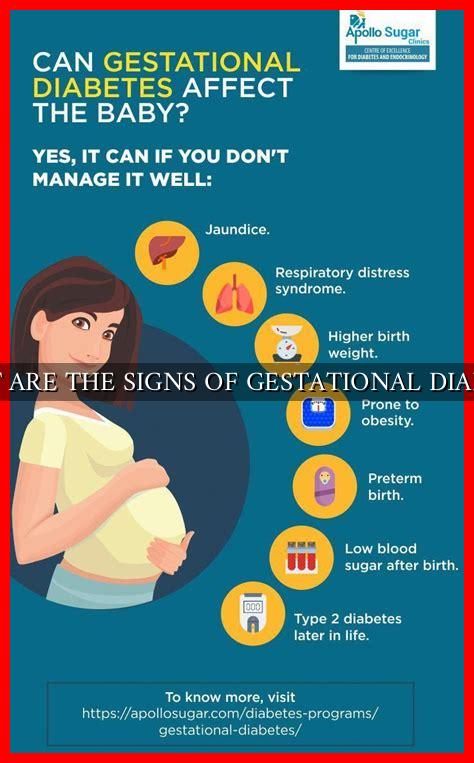-
Table of Contents
What Are the Signs of Gestational Diabetes
Gestational diabetes is a type of diabetes that develops during pregnancy and affects about 2-10% of pregnant women. It is important to be aware of the signs and symptoms of gestational diabetes as early detection and management can help prevent complications for both the mother and the baby. In this article, we will explore the signs of gestational diabetes and how it can be diagnosed and managed.
Signs and Symptoms
Gestational diabetes often does not have any noticeable symptoms, which is why it is important for pregnant women to undergo screening tests to detect it. However, some women may experience the following signs:
- Increased thirst
- Frequent urination
- Extreme fatigue
- Nausea and vomiting
- Blurred vision
- Unexplained weight loss
If you experience any of these symptoms during pregnancy, it is important to consult your healthcare provider for further evaluation.
Diagnosis
Gestational diabetes is typically diagnosed through a glucose tolerance test, which measures how your body processes sugar. This test is usually done between 24-28 weeks of pregnancy.
. If the results show elevated blood sugar levels, it indicates gestational diabetes.
It is important to note that some women may be at a higher risk of developing gestational diabetes, including those who are overweight, have a family history of diabetes, or have had gestational diabetes in a previous pregnancy. These women may be screened earlier in their pregnancy or more frequently.
Management
Once diagnosed with gestational diabetes, it is important to manage blood sugar levels to prevent complications. This can be done through a combination of diet, exercise, and sometimes medication. A registered dietitian can help create a meal plan that helps regulate blood sugar levels while providing adequate nutrition for both the mother and the baby.
Regular physical activity is also important in managing gestational diabetes. Even a short walk after meals can help lower blood sugar levels. In some cases, insulin or other medications may be prescribed to help control blood sugar levels.
Conclusion
Gestational diabetes is a common condition that can have serious consequences if left untreated. By being aware of the signs and symptoms, pregnant women can seek early diagnosis and appropriate management to ensure a healthy pregnancy for both themselves and their baby. If you suspect you may have gestational diabetes, it is important to consult your healthcare provider for further evaluation and guidance.
For more information on gestational diabetes, you can visit the CDC website.


